#stand up for the victims of oct 7
Text
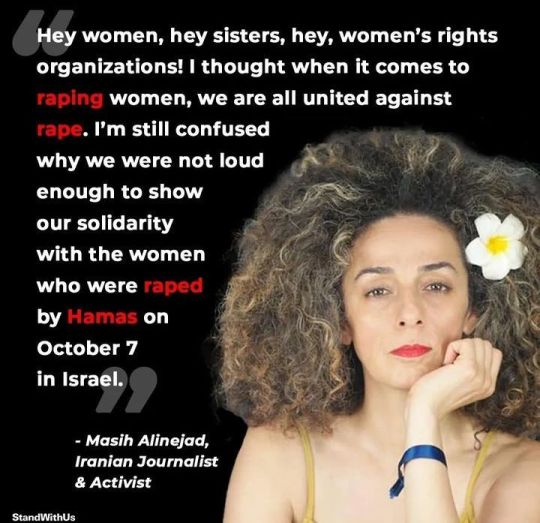

#Rape is not Resistance#stand up for the victims of oct 7#i support israel#israel#hamas are cowards#hamas are terrorists#gaza#womens rights#bring them back#bring them home now
202 notes
·
View notes
Text
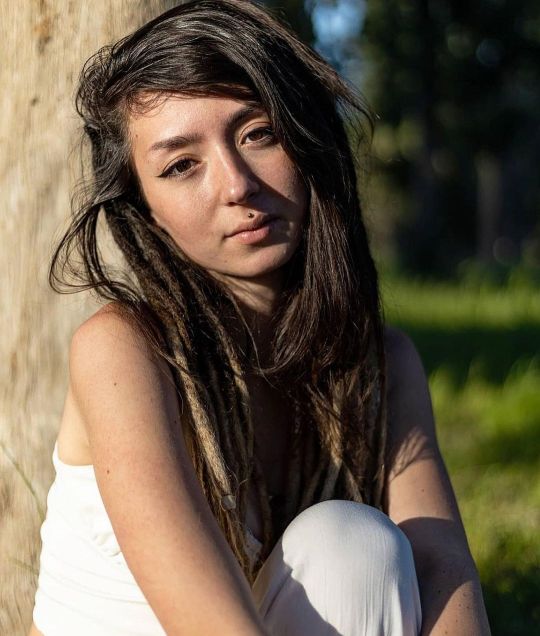

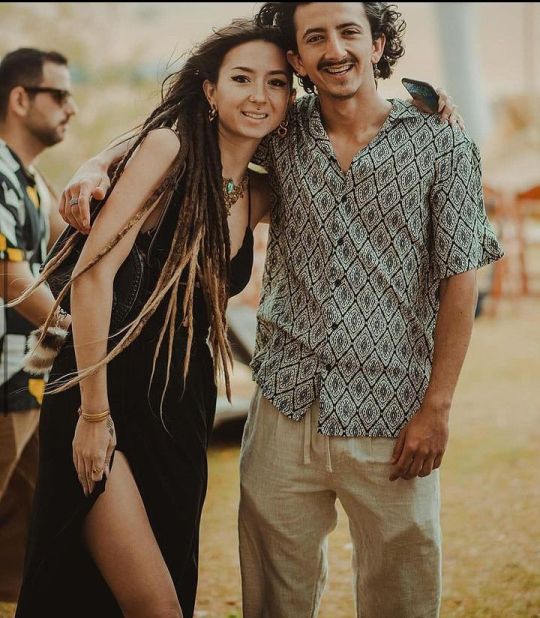

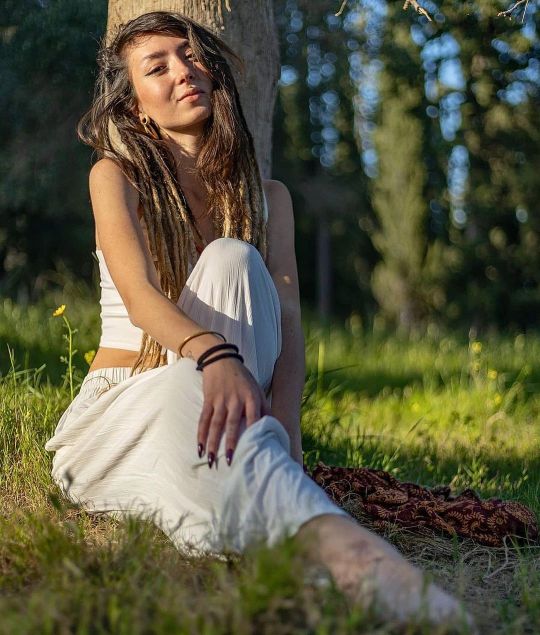
Shani Louk 💔💔💔
She was a real person who had her whole life ahead of her .
She did nothing to deserve this !
Her life was taken by total cowards !
Please pray for shani's family 🙏🙏🙏
May her memory be a blessing 🙏
#shani louk#may her memory be a blessing#israel#gaza#palestine#jumblr#hamas massacre#stand up for the victims of oct 7#oct 7th
59 notes
·
View notes
Text
Daily update post:
I wrote yesterday about a Hezbollah drone which crashed in Israel without setting off the sirens, and missed by a small margin a kindergarten. Now we know about a second Hezbollah drone, which was found in someone's backyard in northern Israel, and which also didn't trigger any alarm systems. The fact that no warning systems were set off twice that we know of, is a real cause for concern, and is being looked into. As this second drone didn't explode after crashing, Israel will be able to study it, which is the main silver lining.
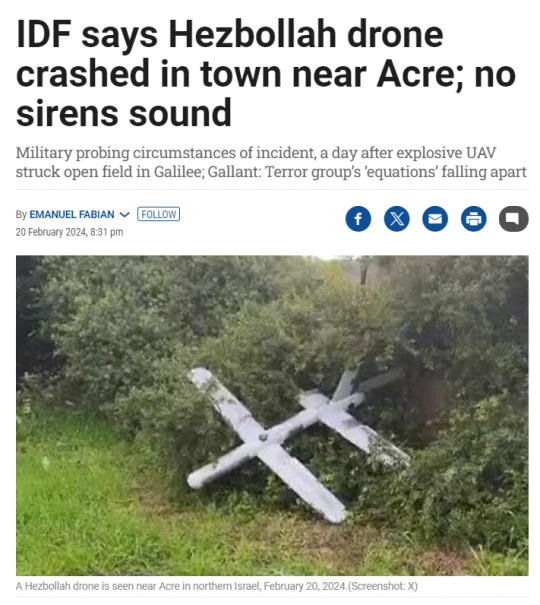
I have written repeatedly about UNRWA's complicity in Palestinian terrorism in general, and Hamas' in particular. We're getting even more data on this. Previous numbers talked about how many UNRWA members had ties to any Palestinian terrorist organization, now the figures on ties to Hamas specifically are being shared: at least 440 UNRWA workers in Gaza were active Hamas terrorists, at least 2,000 are registered Hamas operatives, and at least 7,000 have a first degree relative who's a Hamas member, making a total of at least 9,440 UNRWA employees in Gaza closely tied to Hamas out of a total of 12,000 Gaza UNRWA workers. And since we're talking about this UN agency again, remember when I recently wrote about the social worker employed by UNRWA, who was captured in CCTV footage kidnapping the body of a murdered Israeli man to Gaza, with the help of a fellow Hamas terrorist? Well, we now know who the man, whose lifeless body Faisal Ali Mussalem Naami was kidnapping, is. It's 21 years old Yonatan Samerano.
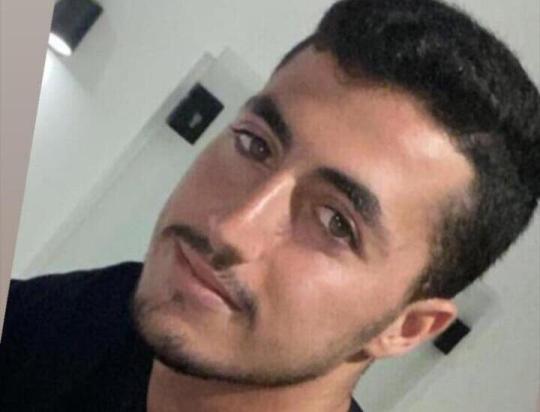
He was attending the Nova music festival on Oct 7. It seems he and two friends tried to escape the slaughter there by fleeing to the nearby kibbutz Re'im, where all three were murdered by Hamas terrorists at the community gate. Then Naami showed up DRIVING A UN VEHICLE (that's right, with UN LICENSE PLATES, as confirmed by Ayelet Samerano) and used this car to kidnap Yonatan's body. In the interview I heard with Ayelet Samerano, Yonatan's mom, she said she's going to be demanding answers from the UN secretary general, and that the family is considering filing a lawsuit. Meanwhile, because Jewish lives really are nothing, I'll remind you that UNRWA has been nominated by a Norwegian member of parliament for a Nobel Peace Prize. If you think this is the bad judgment of one politician, Norway is also one of the few western countries NOT temporarily suspending funding of UNRWA until further investigation, and have even said they might increase it. There's only one bit of good news, and that's the fact the US is saying its suspension of UNRWA fudning is going to be permanent.

The reality of Hamas' brutal sex crimes isn't news at this point to anyone with a bit of decency regarding Israeli civilians' fate on Oct 7, but a new report delving into more details than ever on those sex crimes has now been sent to the UN. I expect it to have zero impact given the UN's track record, but it's still important that this report was compiled and submitted by ARCCI, the Israeli association of organizations aiding rape and sexual assault victims.
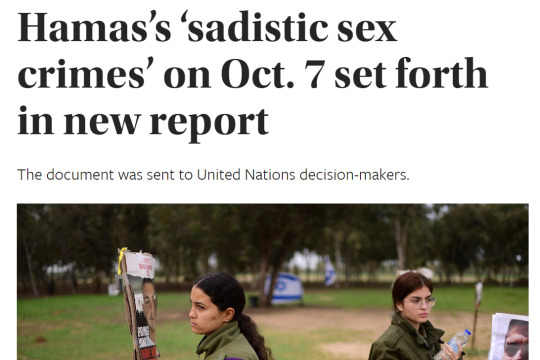
There's a whole saga with Brazil's president, Lula. Sit tight. It started with Lula saying that what Israel is doing right now in Gaza has never happened before in history, and if it did, it was only when Hitler decided to genocide the Jews (this is absolutely untrue on any measurable level. The war in Gaza is not the bloodiest one ever, doesn't have the highest rate of killed civilians when the global one is a 9:1 ratio of killed civilians compared to killed militants while in the Gaza war there's a 4.5 times lower rate at 2:1, and certainly doesn't include an intentional attempt to kill all Palestinians on an intense industrial level with tens of thousands often being killed daily as the Nazis did to the Jews and which made the Holocaust stand out even in comparison to other cases of genocide). So to make it clear, what Lula did was antisemitic, both in falsely demonizing the Jewish state, and in minimizing the Holocaust by presenting it as comparable to a drastically less extreme event (in fact, the internationally accepted IHRA definition of antisemitism has included false comparisons of Israel to the Nazis for years now). In response, Israel has declared Lula a persona non-grata (unwanted personality) here until he retracts these antisemitic comments. This didn't make Lula reconsider his antisemitic comments, instead he recalled the Brazilian ambassador to Israel. This is maybe connected to Lula's warm ties with the Islamist regime in Iran (including allowing Iranian ships to dock in Brazil), which officially denies the Holocaust.

Here is a vid 21 years old Maya Regev, who was injured, and then kidnapped together with her younger brother Itay by Hamas on Oct 7, from the Nova music festival. Despite her complicated leg injury, she didn't get any medical help during here time in captivity, which compounded her state. She was released in the hostage deal more than 2 months ago, and had undergone several surgeries due to the state of her leg. In this footage, shared yesterday, Maya is seen walking on crutches for the first time since her abduction, more than 4 months ago.
youtube
(for all of my updates and ask replies regarding Israel, click here)
#israel#antisemitism#israeli#israel news#israel under attack#israel under fire#terrorism#anti terrorism#hamas#antisemitic#antisemites#jews#jew#judaism#jumblr#frumblr#jewish#unrwa#resources#un
170 notes
·
View notes
Text
In honor of the Deadpool 3 talk going around, be aware that the director Shawn Levy is a Zionist who supports Noah Schnapp, with Ryan Reynold's support.
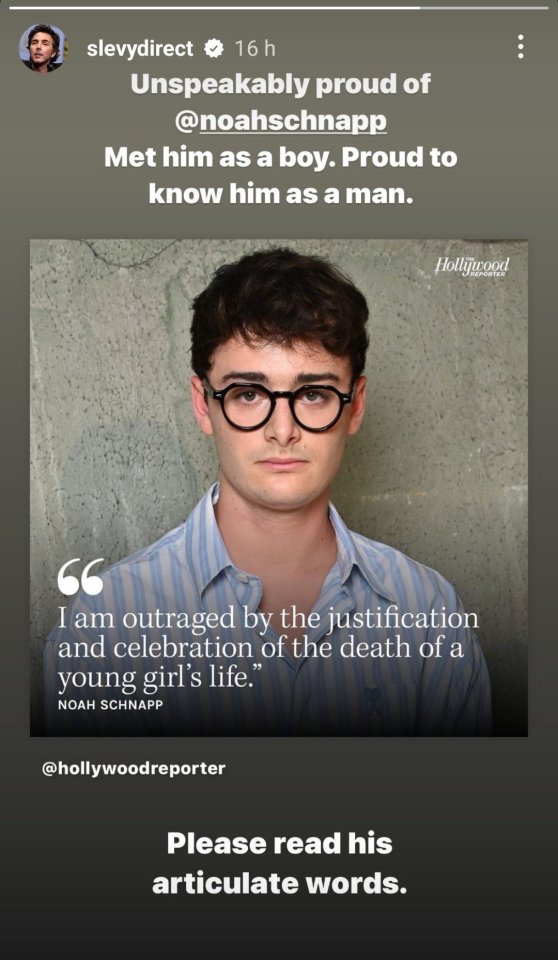
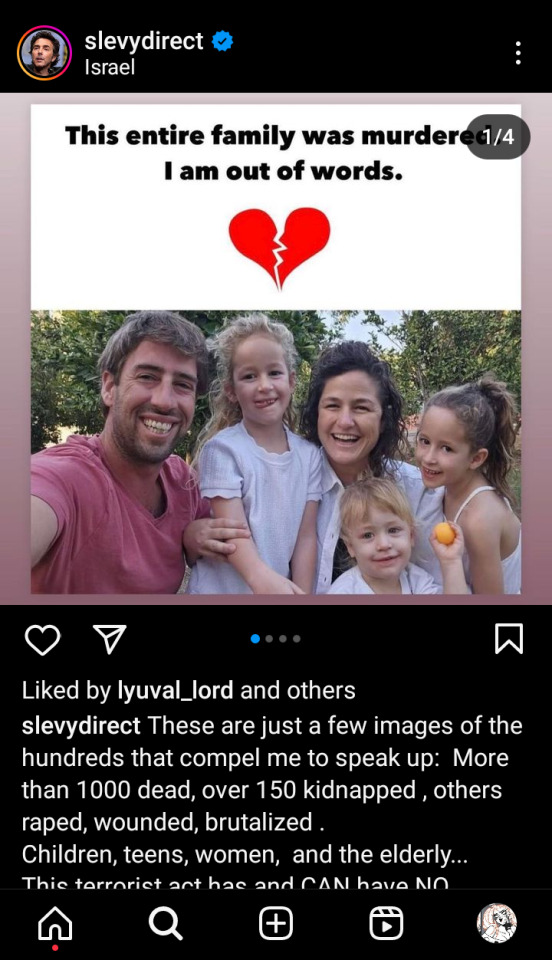

Caption: These are just a few images of the hundreds that compel me to speak up: More than 1000 dead, over 150 kidnapped , others raped, wounded, brutalized .
Children, teens, women, and the elderly...
This terrorist act has and CAN have NO justification, no 'context' that can explain or forgive .
To be clear: this was perpetrated by Hamas-- a terrorist organization that does not seek peace, nor democracy , nor a 2-state coexistence for the Palestinian and Israeli people; they want the elimination of Israel, the eradication of the Jewish people, and what they did in Israel should outrage anyone with basic human principles. You can care about the struggles of the Palestinians and still condemn Hamas as the barbaric terrorists they clearly show themselves to be. Honestly baffled that there's even any debate about this .
You don't need to be Jewish to stand with these innocent victims and hostages. You don't need to be Jewish to be heartsick, outraged and stand against this terror; you just need to be a human being with eyes and ears and heart.
Oct 10, 2023
And yeah, unsurprisingly, he's posted jackshit in regards to the proven lies that were and are spread about the events of Oct 7, or about the propaganda he helped spread, or about how Israel killed it's own people on Oct 7, or how they have repeatedly had chances to get the hostages back (including this month as well!!) and refuse because this has never been about the hostages, or how they've repeatedly lied about Hamas bases and operatives to try n justify bombing hospitals & schools, or how Israel has committed dozens of war crimes over and over, or how there's plenty of recorded proof of IDF / IOF soldiers beating up and assaulting Jewish people who disagree with them, or the videos of Israeli settlers harassing others in their circle for having empathy for Palestinians, screaming obscenities and insults at teachers for having empathy for other humans, or the thousands of Jewish people who stand with Palestine and have been this whole time, or the heinous racist shit Noah Schnapp has spewed lately, or how the IDF / IOF is known for having a problem with soldiers sexually assaulting each other, or how Israel is a safe haven for pedophiles (ya know, rapists), or about the little girl who was stuck in a car with her dead relatives until she was also murdered by Israel (alongside the medical workers who had gone to recuse her), or about the videos of the Israeli military using bulldozers to run over people in tents, to run over a pregnant woman, to run over refugees, or about the family members who've had to carry the pieces of their loves ones in bags because they were blown to pieces by the bombs set off by the Israeli military, or about how they're actively starving every Palestinian person they can and refusing to allow aid into Gaza, or how Israeli folks are actively driving out in droves to physically prevent aid trucks from passing to get to a starving population, or how it's been a tradition for Israeli settlers to go to the edge near Gaza to listen and Celebrate bombings long before Oct 7, or the countless pieces of irreplaceable historical landmarks have been destroyed, or the over 30,000 Palestinians who've been murdered in cold blood since Oct 7 while Zionist cheer on the violence.
Marvel supports Israel, actively, don't let your love for that specific series cloud that.
#im not following ryan so that's someone else's screenshot cause mine just shows a random name#not dc#disney#deadpool#deadpool 3#marvel#mcu#wolverine#shawn levy#anti zionisim
49 notes
·
View notes
Text
by Ben Shapiro
This week at the Oscars, a director named Jonathan Glazer made international headlines. Glazer won an Academy Award for his film, "Zone of Interest," which centers on the family life of Auschwitz commandant Rudolf Hoss and his wife, Hedwig, who happily cultivate their home and garden as just behind the wall, Jews are tortured, shot and gassed. Glazer had an incredible opportunity to point out the obvious continuity between the victims of the Holocaust and the Jewish victims of Hamas terrorists in the Gaza Envelope on Oct. 7; he had the opportunity to point out the continuing plight -- largely ignored by the media and the left -- of some 134 hostages still held in Gaza by Hamas, including American citizens; he had the opportunity to observe the international community's willingness to, for its own political reasons, pile on Israel by attempting to stop the Israeli Defense Forces from destroying Hamas wholesale.
Instead, Glazer did something truly shameful: he used his Jewish background and his Holocaust film to attack Israel.
"Right now we stand here as men who refute their Jewishness and the Holocaust being hijacked by an occupation which has led to conflict for so many innocent people, whether the victims of October the 7th in Israel or the ongoing attack on Gaza," Glazer intoned nervously.
There are a bushel of lies in this single sentence. First, there was no "occupation" of Gaza prior to Oct. 7; the Israelis abandoned Gaza in 2005 and turned it over to the Palestinians, who promptly tore down Israeli infrastructure and elected Hamas, who themselves turned Gaza into a full-scale terror ministate. Second, no "occupation" could justify the wholesale slaughter of some 1,200 innocents in Israel and the taking of 250 hostages on Oct. 7. Third, it is certainly not "Jewish and the Holocaust being hijacked" to point out that Hamas literally targets Jews for extermination, just as the Nazis once did. And finally, Israel is taking extraordinary measures to protect civilian life in Gaza; Israel has taken measures no military in history has taken, including sacrificing the lives of its own soldiers to go door-to-door in a terrorist-ridden urban hellscape.
In fact, Glazer has it all backward. It is he who is using his Jewishness and the Holocaust as a weapon -- in favor of Hamas. Glazer has little actual involvement in Judaism on a day-to-day level -- he grew up reform and there is little evidence of his Jewish practice today. But he's happy to pull out his Jewishness card -- to say that he, As A Jew, stands against Israel defending itself. This allows him to garner plaudits from his fellow political left-wingers, all the while maintaining his status in the intersectional hierarchy. Jews, as it turns out, are only allowed in the intersectional hierarchy so long as they use their Jewishness to attack Israel, or whatever the left-wing cause of the day is.
In reality, Glazer is the villain of his own film. In "Zone of Interest," there are no Jews: all we can hear of them is their screams from beyond the wall. Otherwise, they are nameless, faceless victims. And those are precisely the kinds of Jews Glazer likes. He's happy to use their corpses to win Oscars, even as he attacks the live Jews defending themselves from the ideological descendants of the Nazis, Hamas.
All of which makes sense. After all, as author Dara Horn has pointed out, people love dead Jews. It's the live ones who are so problematic for people like Jonathan Glazer. The live ones have the unfortunate habit of fighting back and making life uncomfortable for doctrinaire left-wingers who want to be accepted in their morally benighted social circles.
25 notes
·
View notes
Text
As war rages between Israel and Hamas in the Gaza Strip, it is hard to envision an end to the conflict. For decades, though, a growing movement of Palestinian and Israeli women has not only envisioned a peaceful coexistence, but also demanded it.
Just three days before Hamas’s Oct. 7, 2023, attack, thousands of women from two peacebuilding groups gathered at Jerusalem’s Tolerance Monument for a rally and march. Israelis from Women Wage Peace carried blue flags, and Palestinians from Women of the Sun flew yellow ones.
Members of the two groups traveled to the Dead Sea—believed since ancient times to have healing qualities—and set a table. Women from both sides pulled up chairs as a symbol of a good-faith resumption of negotiations to reach a political solution.
Women Wage Peace formed in response to Operation Protective Edge, which was Israel’s 2014 invasion of Gaza in the wake of then-U.S. Secretary of State John Kerry’s failed effort to restart final status negotiations.
“We, Palestinian and Israeli mothers, are determined to stop the vicious cycle of bloodshed,” reads the preamble to their campaign, the Mother’s Call. This campaign was nine months in the making, and it involved aligning around a single agenda that demands a political solution within a limited time frame.
They set the table to show the importance of dialogue and women’s involvement in decision-making. But in the war between Israel and Hamas that has started since then, women’s voices are largely missing from negotiations and consultations.
Ensuring women’s participation isn’t about equity or fairness or a show of inclusion. It’s about winning the peace.
In 2014, Laurel Stone, then a researcher at Seton Hall University, conducted a quantitative analysis of 156 peace agreements over time. She found that when women are decision-makers—serving as negotiators and mediators—the probability of an agreement lasting at least two years increased by 20 percent. The probability of the agreement holding for 15 years increased by 35 percent.
Many studies show that women tend to be more collaborative, more focused on social issues over military issues, and less likely to attack those who hold differing views. With women at the table, the potential for risk-taking behavior and attacks on perceived enemies may be lower. In diverse teams, decisions are more likely to be based on facts than assumptions.
While men are more likely to be fighters in war, the work of holding families and communities together more often falls to women, and according to some studies, it’s women who more frequently stand up for a return to negotiations, civilian protection, and an end to violence.
“We learned from the cases of Northern Ireland and Liberia,” Yael Braudo-Bahat, the co-director of Women Wage Peace, told Foreign Policy. Women’s active participation greatly strengthened these peace and recovery processes.
Ahead of the formal talks that led to the Belfast Agreement in Northern Ireland, Catholic and Protestant women’s groups formed the Northern Ireland Women’s Coalition and gained two seats at a table of 20 in formal negotiations. As one of the few groups that moved beyond the sectarian divide, its members were seen as honest brokers. They represented civil society concerns and helped ensure that the agreement included commitments for social healing and integration.
Because the brutality of war falls disproportionately on women—they frequently are the first to go hungry, serve as the de facto caretakers, and become the victims of increased gender based violence—they are often committed to finding a path to peace even when male leaders won’t compromise.
During the Second Liberian Civil War, women played a heroic role by successfully pressuring male decision-makers to negotiate. The documentary Pray the Devil Back to Hell, directed by Gini Reticker and produced by Abigail Disney, popularized the incredible story of how women convinced the warring parties to attend peace talks in Accra, Ghana.
“We were the ones watching our children die of hunger … we were the easiest targets of rape and sexual abuse,” said Nobel Prize laureate Leymah Gbowee, the founder of the Women for Liberia Mass Action for Peace grassroots movement, which played a major role in pushing then-President Charles Taylor to sign a peace agreement in 2003. This common suffering among women formed the basis for unity across political and religious divides.
In Israel and Gaza, women will need to play an important role in the implementation of any new accord between Israel and Palestine, Braudo-Bahat said. Her organization’s partnership with its Palestinian counterpart, Women of the Sun, has remained steadfast, even after learning that her co-founder, Vivian Silver, 74, was murdered by Hamas on Oct. 7.
“We continue our plans—we work together, and we don’t hide it,” she said. “It might be dangerous to the Women of the Sun, but they are so courageous.”
Although many Palestinians want peace, for others, “peace is normalization,” a member of Women of the Sun wrote to Foreign Policy via WhatsApp, choosing to go by the initials M.H. to preserve her anonymity and safety. Some Palestinians think that “it’s something shameful to be dealing with Israel,” she added, because it could imply that the Israelis’ treatment of, and policies toward, Palestinians are tolerable.
“I believe we should actively engage and collaborate, even if some label it as normalization,” M.H. said. “I am committed to working toward a better future for us.”
International law is on the side of these women. United Nations Security Council Resolution 1325, adopted unanimously more than 23 years ago, urges all member states to increase the participation of women in peace and security efforts, and highlights women’s essential role in preventing war, protecting civilians, and negotiating lasting peace.
Despite Israel’s deteriorating track record with regard to women’s rights and roles as decision-makers, women are involved in the war as politicians, members of the military and civilians. Women in politics have made important advances for gender equity, although among the 32 cabinet ministers sworn in a year ago, only five were women. One of those women ministers was dismissed amid the recent closure of the Ministry for the Advancement of Women.
The reality for women in Gaza is far more challenging when it comes to holding leadership positions. Women generally do not participate in public political activities or hold public office, although Hamas appointed 23-year old Isra al-Modallal as its first female spokesperson in November. She told the Guardian newspaper that she is not a member of Hamas or any political party.
At the start of the conflict, Hamas had just one woman, Jamila al-Shanti, 68, serving as part of the organization’s 15-member political bureau. Al-Shanti, who was also a founder of Hamas’s women’s movement, died in an Israeli airstrike on Oct. 19.
“You can hear amazing rhetoric and lip service, even from the Palestinian leadership,” Dr. Dalal Iriqat, an assistant professor at the Arab American University in the West Bank, told Foreign Policy. “But when it comes to practice, I always find a scarcity of women in decision-making.”
Women’s organizations in the Palestinian territories and in Israel have a rich history of political engagement, however. Palestinian women created social structures such as health clinics and orphanages for displaced Palestinians following the 1948 Arab-Israeli War. Following the Six-Day War in 1967, with traditional political structures in tatters and both Gaza and the West Bank under Israeli occupation, women of every social class stepped up.
It was through the networks they formed that a new cadre of women activists emerged as a force in December 1987, when Palestinian frustration with Israeli rule broke out in a popular uprising that became known as the First Intifada, or “shaking off.” Underlying this largely nonviolent Palestinian struggle was a collective social, economic, and political mobilization led by women.
Palestinian political leadership acknowledged women’s centrality in the Intifada, which paved the way for negotiations with Israel when it included three women—Suad Amiry, Zahiria Kamal, and Hanan Ashrawi—as part of the delegation that participated in the Middle East peace talks that culminated with the Madrid Conference in October 1991.
Ultimately, though, exiled Palestinian Liberation Organization leaders shunted the Madrid framework to begin secret negotiations with Israel that resulted in the security-focused Oslo Accords and the establishment of the Palestinian Authority. Under their leadership, Israeli occupation, and the failures of the Oslo Accords, democratic ideals and women’s rights eroded.
Israel and the United States have discussed a potential role for the Palestinian Authority in Gaza after the military operation. The Palestinian Authority has three women ministers, including its minister for women’s affairs, though women still struggle for equal opportunities and freedom from violence.
“Women usually refrain from being [an] activist in politics,” said an activist in the West Bank who withheld her name for security reasons. “Women are frightened to be involved in political activities, because they will be put in jail or be subjected to any kind of violence.” And the conditions are much worse for women when funding is restricted, as well as under Hamas, she said.
Serena Awad, a Gazan nonprofit worker who is now living in Rafah, told Foreign Policy that Gazan women are directing and managing many aspects of the humanitarian response. These women work for the United Nations as well as in health, cultural, child protection, human rights, sports, and legal organizations.
“I have lived through six aggressions, and every time, I wait for my turn to die,” said 24-year-old Awad. “What I want the world to know is that women in Gaza are like any other women—we study, go to work, have our own family, but we suffer.”
Israeli and Palestinian women working as peacebuilders say they need more international support. Women’s organizations are notoriously underfunded in the best of times, with only 0.4 percent of global gender-related funding going directly to women’s rights organizations, according to calculations by the Association for Women’s Rights in Development.
During crises, women’s rights often take a back seat. Women of the Sun’s 2024 budget is approximately $100,000, and Women Wage Peace’s budget is approximately $1 million, according to the organizations’ representatives.
Women’s groups are more likely to be effective during negotiations and during the implementation of recovery programs when they have access to external funding. During the peace process between Sudan and South Sudan, for example, South Sudanese women were highly mobilized as delegates, but some had to pause their involvement so they could go back to earning money.
In addition to funding, democratic countries have a role to play by insisting on women’s participation in negotiations, said M.H. of the Women of the Sun. She and other peacebuilders say that the United States and the United Nations should be more active in promoting women as counterparts, negotiators, and experts.
“By will, things can happen,” M.H. told Foreign Policy “And if the US says it [that women should be involved in negotiations], it can happen.”.
Talks convened by Qatar, the United States, and Egypt to end the conflict between Hamas and Israel are underway. These countries and other regional players—including Jordan, Israel, and the Palestinian Authority, have previously created national action plans that recognize the unique impact of war on women and their crucial role in promoting peace, culminating in 107 countries worldwide forming national action plans to empower women.
Still, news coverage reveals little or no evidence of efforts by these countries to promote women’s participation in the Israel-Hamas conflict.
The U.S. State Department is “working to ensure the expertise of women from civil society and in government is incorporated in any process related to the current conflict in Gaza,” wrote a spokesperson in an email.
If the political will for participation exists, both Israelis and Palestinians have a robust list of women advocates from which to draw for official and nonofficial negotiations and discussions. A diverse list of 12 Israeli and Palestinian women who are qualified to participate in negotiations was provided by the 1325 Project run by members of Women Lawyers for Social Justice—known in Israel as Itach Ma’aki—to the U.S. Embassy and other embassies and international bodies.
“At least one person will be engaging in Track 2 and 3 efforts, and she was approached through us by an international body,” said 1325 project co-director Netta Loevy, referring to nonofficial negotiations and consultations.
Braudo-Bahat, meanwhile, urged policymakers to involve women in discussions now—not after violence ends. “The day after the war is yesterday … we need to start now,” she said.
Back in Gaza, the water tastes like poison; it’s freezing, and Awad, the 24-year-old nonprofit worker, keeps losing weight. She asked almost a dozen Gazan women leaders what they think should happen to resolve the war and to ensure that women participate in negotiations.
No one could give her an answer. They were busy responding to humanitarian needs, and telecommunication and internet services were out.
“Nothing has changed, but what can we do about it? All we can do is waiting and praying for this to end,” Awad wrote to Foreign Policy through WhatsApp, which only works for her about once every four days.
Iriqat, the Arab American University professor, has one wish: “That someone considers that if women are in charge, and involved, a more strategic agreement could hold.”
26 notes
·
View notes
Text
by Rikki Hollander
Anti-Zionist/anti-Semitic activists whose life’s mission it is to delegitimize the Jewish state have been going through a rough patch as they’ve seen Western support for their mission drop in the wake of the atrocities perpetrated by Hamas and other Palestinian terrorists on civilians in Israel — including the targeting of infants in their cribs and of the elderly and infirm, of women and children, as well as men who were either brutalized, tortured, raped, burnt alive, decapitated, massacred or taken hostage — all as a means of achieving Hamas’ stated goal of annihilating the Jewish state and its Jewish residents. The date of the Palestinian terrorist invasion, Oct. 7, 2023, marked the deadliest day for Jews since the Holocaust.
To be sure, there are still some supporters in the West who celebrate the carnage in Israel unleashed by the terrorists and others who justify the massacres, but the vast majority of Americans and international leaders have expressed solidarity with Israel –lighting up landmarks all over the U.S., as well as in Paris, London, Rome, Berlin, Madrid in Israel’s blue and white colors. They understand and have expressed recognition of the existential threat faced by Israel from its neighboring, Palestinian genocidal terrorist regime and the Palestinian leaders who refuse to condemn its savage actions.
Ever since the Oct. 7 Hamas attack awakened this sense of solidarity with Israel, the anti-Zionist activists have been urgently scrambling to shift the narrative, justifying Hamas actions as “the right of colonized people…to resist the occupation of their land by whatever means they deem necessary,” attacking “the governments of the colonial West for… hypocritically standing with apartheid Israel and duly adopting its deceptive timeline of the current ‘violence’ as if it all began on Saturday with the powerful armed reaction of the oppressed Palestinians in Gaza” and trying to change the conversation to condemning the Israeli Defense Force’s targeting of Hamas strongholds and weaponry even while trying their best to avoid civilian collateral deaths — by falsely branding Israel’s actions as war crimes.
In the midst of all this, a brutal murder took place in the U.S. The victims were a 6-year-old, innocent Palestinian boy stabbed to death and his mother, who was injured in a stabbing by his family’s deranged landlord who entertained paranoid delusions about the Palestinian Muslim family killing him after reportedly hearing news stories about the massacres by Palestinian terrorists in Israel.
Enter the anti-Zionist activists who cynically exploited the tragic event for their own purposes as they attempted to attack Israel and connect it to Israeli military actions. Ahmed Rehab , Executive Director of the Chicago Office of the Council on American-Islamic Relations (CAIR) and CAIR’s National Strategic Communications Director, spoke at a press conference alongside the family members of the victims where he essentially blamed the support expressed for Israel and condemnation of Hamas actions as contributing to the murder and tried to turn the conversation to allegations of crimes by Israel. He said:
“I blame the murderer for the murder, but also I ask all people of conscience, I ask our leaders, I ask our media to what extent …was [the murderer] radicalized and brainwashed by this lopsided, one-sided atmosphere that has fanned the flames of hatred against Muslims and Palestinians. And just as the families of these Palestinian-American citizens back in Gaza and in Palestine are suffering from what is now being called war crimes – blanket bombings, etc. – and this boy, this family who sought refuge in the United States have now been stabbed – one is killed and one is in serious condition, we fear for her life. And I was speaking to the father and he said part of the reason we came here was to escape the settler-violence in which situations like this could occur with impunity, and it chased us all the way to the United States.”
Rehab used his platform to attack not only Israel and its supporters, but he impugned Jews, as well, for the murder by insinuating, without an iota of evidence, that the murderer, Joseph Czuba, was a Jew. In fact, he was not. (Czuba and his wife belong to a Catholic church in Plainfield, Ill.) Nor was there ever any indication that the perpetrator was of Jewish background. But the opportunity to delegitimize the Jewish state and its Jewish supporters was too good to miss, so despite any evidence, the CAIR spokesman inferred that the murderer was a Jew radicalized by the news reporting from Israel.
Lest anyone still doubts that anti-Semitism is inherent in the anti-Zionist narrative depicting Jews in Israel as settler-colonialists responsible for all the violence in the Middle East and Jewish supporters responsible for violence elsewhere in the world, and lest they doubt the anti-Zionist/anti-Semitic agenda of CAIR, just listen to its spokesman’s words and innuendo. Watch below.
17 notes
·
View notes
Text
2022 in antisemitic hate crimes.

Jan. 2nd: a 26 year-old Hasid was chased and beaten in Williamsburg. He required several staples in his head.
Jan. 14: in front of a Haredi Orthodox shul in Midwood, a white woman wearing Uggs and an orange hoodie spat on an 8 year-old Jewish boy and made anti-Semitic remarks. The woman allegedly yelled — at a 2, 7, and 8 year-old child playing outside of a synagogue, mind you: “Hitler should have killed you all.” “I’ll kill you and know where you live.”
Jan 22: On Shabbat in Crown Heights around 1 AM, a Hasidic man told the NYPD that he was approached and punched in the face. It's being investigated as a hate crime.
Feb. 4: On Shabbat in Bedstuy, a man ran up to two Hasidic men and punched one of them in the head.
Another assault involving a Jewish victim was also reported that same night
Feb. 11: At least one religious Jew was attacked on Shabbat evening in Flatbush by a person in a hoodie. NYPD are investigating as a hate crime. "Video shows the attacker trying to intimidate the victim, then slapping him in the face, knocking off his yarmulke."
April 1: A group of assailants repeatedly punched and kicked a Hasidic man in Williamsburg. a blurry video appears to show the group striking the victim and shoving him against the side of the truck, where he collapsed, and the beating continued.
April 2: Three teens armed with a crowbar, a knife and a machete allegedly threatened six boys, ranging in age from 12 to 16, on the Upper West Side.
May 6: Two men punched and kicked a rabbi in Crown Heights while making anti-Semitic remarks.
May 10: A man in a hoodie ran up to and punched a Jewish man walking in Flatbush. The man allegedly said, "Free Palestine."
July 13: 3 men assault a Jewish father in front of his 5 year old child
Aug. 9: A 44 year-old Jewish woman at a subway station on the Upper East Side "was choked by an unidentified male suspect, who made antisemitic remarks to her while she waited on the subway platform of the No. 6 train at around 11:20 a.m." according to NYPD.
Aug. 20: Two ultra-Orthodox men were chased down the street in Williamsburg, and at least one was sprayed with a fire extinguisher (which contains major skin and eye irritants)
Aug. 22: A 27-year-old Hasid was slapped by a stranger on Lynch St. near Marcy Ave in Williamsburg at about 4:30 p.m., per NYPD.
Aug. 22: Two teenage boys and a teen girl harassed and then chased a 13-year-old Jewish boy off of a Staten Island bus, took the boy's yarmulke from of his head, and fled.

Sep. 13: A 58 year-old man in Far Rockaway was allegedly punched in the face by a man hurling antisemitic epithets. NYPD has arrested a 34 year-old suspect, per Hamodia.
Sep. 17: Female suspect verbally assaults a Hassidic man before slapping the hat (and Kippah) off his head
Oct. 23: A suspect on a bike road up behind an 18 year old Jewish man and knocked him down
Oct. 24: Three students standing outside their Yeshivah on Avenue L & East 18th Street, were pelted by eggs. The perpetrators screamed “Free Palestine" and forced the students to say it as well.
Nov. 3: an elderly Jewish man walking on Kingston Ave had water and garbage thrown at him.
Nov. 8: Three men fired a gel-based pellet gun at a Hasidic woman and her son. They have been charged with assault as a hate crime, assault, aggravated harassment, and criminal possession of a weapon.
Nov. 9: A group of 4 assaulted a Jewish man in Brooklyn, knocking off his streimel
Dec. 5: A father and his 7 year-old son were shot with a BB gun outside of a Staten Island kosher grocery store
I want to be clear that A) this is ONLY! inside of New York City B) is only assaults and not any other kind of hate crimes like harassment or threats or property crimes and finally C) this is one reporter's informal attempt to track this problem, she admits she thinks she missed some crimes, so this list should not be seen as an authoritative list.
128 notes
·
View notes
Text
Israeli Peace Activists Who Lost Loved Ones in the Hamas Massacre Stand Their Ground
Many of the victims of the Hamas pogrom and their family members were and continue to be peace activists. The surviving relatives now have to deal not only with profound grief and dread, but also with hateful comments; but their personal tragedy hasn't changed their dovish stance. On the contrary
Shany Littman Oct 27, 2023 10:35 pm IDT
Yakovi and Bilha Inon’s children didn’t wait to be officially notified that their parents’ bodies had been identified before they began sitting shivah. On the night of October 7 they posted a death notice and the next day they embarked on the week-long mourning ritual, according to their son, Maoz Inon, a social activist and entrepreneur, and co-founder of the Abraham Hostels in Jerusalem and Tel Aviv. Yakovi’s body was identified 12 days after Hamas’ attack on southern Israel that Saturday. Bilha’s body has yet to be identified at the time of this writing, 17 days later.
Maayan Inon, Maoz’s older sister, says that already on that terrible Saturday they had a feeling about what was happening in their parents’ moshav. “Early Sunday, my brother-in-law traveled to their home in Netiv HaAsara, accompanied by security forces, and saw two unrecognizable bodies, but it was clearly them,” says Maayan, 50. “That was enough for us, we didn’t need more than that to realize we need to start mourning.”
The first shivah of the October 7 War became a collective ritual of mourning. “Survivors from Nir Am, Netiv HaAsara, bereaved families – they all came to us,” says Maoz, 48. “It shook all of us up. There was an emotional bond between all the survivors, or maybe they’re better described as victims. During the shivah you’d hear about this guy from school who had been killed, and that girlfriend, and this person’s son – a lot of people you know.”
“We arranged the shivah in a very intuitive way, and in retrospect, it was correct,” Maayan adds. “We were together, and we had the space and the time to come to grips with the fact that they’re gone. Survivors from Netiv HaAsara were dispersed and didn’t have a place to gather and process what happened, so they came to us. I heard my parents whisper in my ear, ‘We’re fine, take care of them.’"
Yakovi was an agronomist and farmer, a native of Kibbutz Nir Am; Bilha was an educator and artist, born on Kibbutz Ruhama. Both were people of the Negev who lived their whole lives near the Gaza Strip. Their first home was on Nir Am, which is where their five children – Mor, Maayan, Maoz, Magal and Magen – were born.
“My father had Bedouin and Palestinian friends,” Maoz recalls. “I remember being 6 or 7 years old and traveling with one of them, Ali Khamis, to fix his truck at a garage in Gaza, and then he’d take me to a restaurant. When I told him my parents were killed, he collapsed and was hospitalized.”
When the kibbutz movement faced a severe crisis in the ‘90s, the Inons decided to leave Nir Am and start over some 60 kilometers to the north, in Netiv HaAsara, with barely any financial means. They bought a small plot of land and built a modest home. Yakovi was the head of moshav’s secretariat, helped plan a large logistics center adjacent to the Erez Crossing, and even advocated unsuccessfully for the opening of a hospital there that would serve the residents of Gaza.
On the morning of October 7, Yakovi sent a message to his children saying that he and his wife had locked the doors and were in their safe room. “When we realized that there was a terrorist infiltration, it became clear to us that they wouldn’t survive. We always knew the house couldn’t withstand an attack. We called it a cardboard house,” says Maayan. “But they felt safe. My dad always said: We can’t live in fear. He claimed that fear is a subjective thing and he didn’t really feel it. My mom had some bouts of fear and anxiety. But they still chose to stay because they loved the area and the people, they were pillars of their community, and they lived well. The fact that he locked the house was a sign that they sensed that something unusual was happening.”
It emerged that the terrorists who infiltrated the moshav fired a missile at the house, which went up in flames. Yakovi and Bilha died in the inferno.
“In their will, my parents asked that their bodies be cremated,” Maoz says. “They said the soil was a place for wheat, not graves. They asked that we spread their ashes in the moshav’s fields, and over the graves of my dad’s parents on Nir Am. And that’s what we’re going to do.”
Maoz Inon says that up until October 7, he didn’t describe himself as a peace activist, but rather as a social activist. For two decades he has been coming up with initiatives that focus on using tourism as a tool for social change, and linking it with a vision of Jewish-Arab coexistence and joint cultural and business ventures. In 2005, he opened the first backpacker hostel in Nazareth’s Old City, the Fauzi Azar Inn, in partnership with the Palestinian family that owned the premises. He went on to help create hiking trails linking Jewish and Arab locales and founded the Abraham Hostels network, which in addition to accommodating travelers in an atmosphere of “sustainable tourism,” offers activities for different communities in Israel: Haredim, asylum seekers and LGBTQ people. Most recently, Inon founded Abraham Tours, which organizes trips to the Palestinian Authority, Jordan, Egypt and Israel. One of the tours used to pass through his parents’ moshav.
After the flare-up of hostilities between Israel and Gaza in May 2021, Inon began organizing tours with a political agenda, together with Nazareth-born activist Kholoud Abu Ahmad. “We realized that the first step toward a life together is to get to know the other’s narrative,” he says. “It’s very dangerous to repress, silence and block out the narrative of the 20 percent of Israel’s citizens who are Palestinian. They are citizens, and they aren’t going anywhere. We shouldn’t be afraid of the Palestinian identity. We should get to know them, hear their story, know what causes them pain.”
The personal tragedy that struck the Inon family three weeks ago has not changed his views. On the contrary. Since that Saturday, Inon defines himself as a man on a mission. “Look at our state,” he says. “We’ve been warning for years that we were on the precipice of an abyss, and now the biggest disaster since the Holocaust has struck the Jewish people, under the leadership of the ‘fully’ right-wing government, which will be the end of us. We have to change all our terminology and our basic assumption that Israel’s security is based on military might.”
You aren’t angry, you don’t want to punish the people who did this?
Inon: “I understand the anger and the frustration, and I understand the desire for revenge, but I also see where this revenge has gotten us over the past century. If the Hamasnik who fired the missile at my parents’ house was sitting across from me right now, I would talk to him. I would want to understand. I would want him to see me cry.”
His sister Maayan also says she doesn’t feel hatred or anger – just pain. “It tears me up inside that people have gotten to the point where they are capable of behaving this way. The question is, do we want to continue this round [of fighting], is this round good for us? Or do we want to look for a different, less violent, less cruel and destructive path? I don’t think we can say hocus-pocus and reality will change. But I believe that through work and growth, there’s hope and opportunity for change. We can create healthy, balanced and proper relationships.”
‘No innocent lamb’
Quite a few peace activists and their relatives were murdered or taken hostage during the October 7 pogrom perpetrated by Hamas. In the three weeks that have passed since that terrible day, their families have had to deal not only with profound loss and grief, and dread over the fate of loved ones who are hostages or still missing – but also with hateful comments on social media and on the street.
Facebook posts mentioning Vivian Silver from Kibbutz Be’eri, one of Israel’s most prominent left-wing activists, who served on the board of the B’Tselem rights organization and helped to found the Women Wage Peace group, and is now being held hostage in Gaza, were met with comments like “she wasn’t abducted, she’s just visiting friends,” “she ought to stay there with her peace-loving friends,” and “this is a story of an Israel-hater who made her bed and slept in it,” among others.
Similar comments greeted Neta Heiman-Mina, a member of Women Wage Peace and a native of Kibbutz Nir Oz, after she published posts about her 84-year-old mother, Ditza, who was also taken hostage by Hamas.
“People wrote me that the blood of all the 1,300 victims is on my hands, that I deserve the fact that my mother was abducted to Gaza, and that they’d be willing to help me join her. All kinds of pearls of wisdom. After I appear in the studios of the main television channels, I am immediately attacked. A few days ago I was interviewed at about 2 A.M., I was sure no one was listening, but by the next day my inbox exploded. Someone wrote, ‘Yuck, you stinker – because of people like you there’s antisemitism. You’re the reason she’s there. Go help soldiers instead of stinking Arabs.’ Someone else wrote, ‘Leave Israel and move to Palestine.’”
You haven’t blocked comments on your page?
Heiman-Mina: “No. Facebook has blocked people who aren’t friends from responding in order to prevent all kinds of hateful comments about Israel, but it turns out we need protection from people who are among us. People who have been poisoned for so long don’t know when to stop.”
Heiman-Mina is sure that her mother was taken to Gaza alive because footage captured on October 7 shows Ditza being forced into a car by Hamas terrorists. In the clip, she appears to be healthy, but since then there has been no information about her fate. Meanwhile, her daughter has been traveling from funeral to funeral.
“Every day,” she says, “I have to choose which one to attend. First I go to the funerals of relatives of people I grew up with. Of the 13 people in that group, two members’ families weren’t on the kibbutz that Saturday, and two other members’ parents survived. The rest all have parents who’ve been kidnapped or murdered, or both of those things.” An estimated 79 residents of Nir Oz are among the hostages.
Heiman-Mina has been active in the Women Wage Peace organization since 2017, and explains that, “It’s a group that talks about a diplomatic accord [with the Palestinians], and doesn’t necessarily demand two states for two people. Some of the members live in the settlements … But it is a movement that believes ‘peace’ is not a dirty word – that it can belong to everyone, not just those on the left.”
When you were growing up, what was your attitude toward the Palestinians on the other side of the fence?
“They worked for us, they were around on the kibbutz. No one was afraid of them. Or at least that was my sense as a child. Most kibbutzniks believed in peace. There was a big group that belonged to the Peace Now movement. That was the feeling, that all people are equal and everyone deserves to live in peace. As children we didn’t feel like we were on a border. Before the first intifada, people from the area traveled to Gaza to shop.
Do you feel today that you were wrong about the Gazans?
“No. Not at all. Those who didn’t think like us were mistaken, and they got us into this situation. Those who didn’t think they [the Palestinians] deserve a fair life, who thought that we can rule over another people for so many years and it wouldn’t backfire – they were wrong. Many others were wrong. We weren't wrong. If they had listened to Women Wage Peace – who have been screaming at the top of their lungs since the 2014 Gaza war that the time has come to end the suffering, and that it’s possible to end it – we wouldn’t be in a situation where my mother is in Gaza in the hands of monsters.”
Heiman-Mina says that the horrific events of the past few weeks have only strengthened her belief that a diplomatic process is necessary to solve the conflict: “No matter how many times we try to eradicate Hamas – after all, we supposedly erased it a few times already – the next round will always be worse. The belief that the solution must be a diplomatic one hasn’t been undermined; it has grown stronger. Because this time I have been personally affected.”
Her opinions about the terror organization haven’t changed, either. “We didn’t think that Hamas was some innocent lamb. What surprised us now wasn’t that they tried [to attack], but that the army couldn’t protect us. The Palestinian people suffer a lot from the Hamas regime, but what can you do? Hamas is our enemy right now, and peace is waged with enemies, no matter how cruel they are. We have no other choice. It’s not easy, it will be painful, but it can happen. Of course I feel rage toward Hamas. Clearly the people who took my mom and the people who perpetrated the slaughter are animals. Of course the initial anger is directed at them. But that doesn’t reduce the anger I feel toward those who didn’t protect the victims, who include my mother, who helped to found the state.”
Speaking out while cannons roar
Tom Godo was 52 when he was murdered in his home on Kibbutz Kissufim, in the northwestern part of the Negev on the morning of October 8; he had been bodily blocking the door to the safe room in his home for 24 hours to protect his wife and three daughters. As the terrorists opened fire at the door with armor-piercing bullets, Godo’s wife and daughters escaped through the window – and survived.
In the eulogy he delivered at his son’s funeral, on Kibbutz Na’an, Yaacov Godo said: “The fingers that pulled the trigger and murdered, the hands that held the knives that stabbed and beheaded and slashed were the loyal and determined emissaries of the accursed, messianic and corrupt government [of Israel], which consists of an arch-criminal accused of illegal acts and a group of entirely incompetent sycophants who lack any political vision… At these very moments, a violent rampage of Jewish, messianic terrorism is being waged to ethnically cleanse and kill [Palestinian residents in] villages and communities around the West Bank and the Jordan Valley, backed by the army and the police.
“I can’t tell Tom, ‘rest in peace,’ because his tumultuous soul will detect the hypocrisy. At the end of this hellish ordeal, and after the stables are thoroughly cleansed, when the sun really starts shining, I will visit your grave, dear beloved Tom, and tell you: ‘Rest in peace, you are free.’”
In the eulogy for his father Eviatar Kipnis, 65, who was killed on October 7, Yotam Kipnis also chose to mention Eviatar’s commitment to peace. “We will not stay silent while the cannons roar, and we won’t forget that Dad loved peace. He wasn’t willing to serve in the territories ... Do not write my father’s name on a missile, he wouldn’t have wanted that … We will stand up and protect our home in the name of life. We will sanctify life, not death, because there is good in the world, and it is worth fighting for. Not for revenge … Dad never forgot that innocent people live in Gaza, stuck between the rock of the Israeli government and the hard place that is the Hamas dictatorship. Hamas is the enemy. Not the Palestinians. Hamas, knowingly strengthened by the [Israeli] government that believes in a race war. We will not forget and will not let it be forgotten that this war won’t really be over until there is peace.”
Yaacov Godo, 72, is active in Looking the Occupation in the Eye, a relatively new organization that aims to raise awareness of goings-on in the occupied territories, and accompanies Palestinian shepherds in the Southern Hebron Hills to protect them from settler attacks. Since the war broke out, he notes, almost all of the shepherding communities in that area have been driven away: “Immediately after the war began, a crazy ethnic-cleansing rampage was launched by the settlers. The army is observing from the sidelines. The settlers injured five of our activists. They detained and beat them.”
Godo wasn’t always a peace activist, but was motivated to become one by the so-called Balfour protests against Netanyahu and the government in 2020-21. “My opinions were always left-wing but weren’t given expression on the ground. Over the years I avoided visiting the territories. When I did go there, I was shocked. I was familiar with Judea and Samaria from my military and reserve service, and suddenly I saw a terrible reality there.”
Since Tom’s murder, however, Yaacov has not resumed his activist role. “My wife and I need to protect each other now,” he explains. “But I’ll be back. I told myself that if I go back there now, I might do something irrational. Sometimes the settlers push us and hit us, and we’re not violent in principle. But in my current state, I might lash out.”
Your feelings are aimed at the settlers, and not at Palestinians?
“I see these violent people using all means to commit ethnic cleansing, hurting people – children and women. They hit, shoot sheep sometimes. What happened on Saturday was terrible and unforgivable. But I don’t think that acts of revenge should be carried out against all Palestinians, or against all Gazans. I don’t think Gaza should be razed to the ground. Killing women, children, the elderly – how are they to blame? As much as I am mourning Tom – he was murdered by Hamas, and I believe that they were emissaries of Israel’s government, whether they knew it or not.”
Godo says he has not been able to sleep since Tom’s death; at night he replays the events that happened there, in the safe room. “Cruelty is cruelty, what happened there is unforgivable. But where was the army? My son, Tom, was in the safe room for 25 hours, under attack. At 4 P.M. Saturday, an Egoz [combat] unit arrived at their home. The soldiers told Tom and the family, ‘We’re not evacuating you yet; in a few hours someone will come rescue you.’ Who am I supposed to blame?”
Hamas wasn’t fighting soldiers, but attacked civilians, including children. How can that be explained, how can it be forgiven?
“If the army had been there, they [the terrorists] might not have infiltrated towns. I’m not justifying what happened. I can be angry and also in pain. But Hamas can’t be eradicated as an idea, so what we’re doing now beyond physically taking out Hamas’ members is that we’re raising the next generation of haters and pogromists. And they will be more hateful and bloodthirsty. Gaza already has more than a million refugees. How can that be justified? Can a state exist, based on revenge? ”
Have you gotten comments on your eulogy on social media?
“Yes, someone said, ‘If these are his opinions, why does he live on Na’an, he should go to Nablus.’ Someone else wrote, ‘I’m sorry for your loss, but why stick politics into a eulogy?’”
People also found it difficult to accept the comments made by 85-year-old Yocheved Lifshitz, who was released by Hamas this week along with Nurit Cooper, 79. Lifshitz told reporters that her captors in Gaza had provided food, hygiene and medical care. She said she even turned around to shake the hand of the Hamas operative who handed her over to the Red Cross, and told him “Shalom.”
Yocheved’s husband, Oded Lifshitz, 84, a former journalist, was also abducted and remains in Hamas captivity. Over the past few years, he volunteered with The Road to Recovery, an organization that arranges transportation for sick Palestinians from the Erez Crossing on the Gaza border, and at the Tarqumiyah Crossing in the West Bank, for treatment in Israeli hospitals. Many of the volunteers come from the Gaza border communities. Some were murdered in the Hamas rampage; others, like Lifshitz and Haim Perry from Kibbutz Nir Oz, were taken hostage.
“Almost every kibbutz in the area has a volunteer in our group – or two or three,” says Yael Noy, who heads the Road to Recovery nonprofit group and was born on Alumim, another kibbutz on Israel’s border with the Strip. “Most are retirees. They give as many rides as they can. Adi Dagan, from Kibbutz Be’eri, who was killed in the attack, gave a lot of rides, both from Gaza and from Hebron. Vivian Silver, who was taken hostage, Eli Orgad of Kfar Azza who was murdered, Tammy Suchman of Kibbutz Be’eri who was murdered – they all gave people rides from the Erez Crossing.”
Noy always saw helping Gazans as a natural thing for residents of the Israeli border communities to do. “Anytime someone would say ‘The poor people of your city take precedence,’ I would respond: Gazans are the poor of my city. It’s the city that’s closest to me. As far as I’m concerned what we do is a humanitarian act that helps the neighbors who live closest to us … In the Road to Recovery organization, we don’t ask people about their politics. We have volunteers from Nokdim and Kedumim and Kfar Etzion [West Bank settlements], and my dad who lives on Alumim votes for right-wing parties, and the organization is his home as well.”
Since that black Saturday, Noy admits that she has had trouble accepting the losses that have been suffered, as well as the complexity of the situation. “I’m torn. All day long I get WhatsApp messages from patients in Gaza who ask how I’m doing. There’s a lot more empathy and interest from patients and our coordinator in Gaza than from the people we work with in the West Bank. We continue to drive patients from the West Bank but it’s very difficult, because they’re silent. They don’t have even one word of empathy [for us]. I’m always looking for that place inside me where I can find peace in the face of this, and I don’t always succeed.”
And yet, Noy has no doubt that she has to keep going: “I always think about the morning after. There are cracks that have to be mended. A few days ago I didn’t notice that I left the house wearing a Looking the Occupation in the Eye T-shirt. I was on my way to visit a neighbor, and when I realized what I was wearing, I took the shirt off in the middle of the street and turned it inside out. I don’t feel comfortable wearing it now, I don’t want to cause anyone pain and I feel like my opinions may cause pain now. I never felt doubts before, or uneasiness. When I visit my parents, who have been evacuated to a hotel in Netanya, some members of the kibbutz say: ‘You realize that this is because of you and the people you drive around.’ I cause them pain with my presence.”
Does that shake you up?
“Yes, but it’s clear to me that I’ll keep going. I’m fighting to keep my humanity. I’m scared of turning into a monster like [Hamas]. I don’t want the seeds of evil to sprout within me, because they’ve sprayed us with that filth. We have no choice but to bear witness. You have to hear the stories and stay human, and I don’t know how that’s possible. There’s a very big rift inside, but I keep going. The requests come in and we respond. There are lots of new volunteers joining now, especially now.”
You don’t harbor any anger vis-a-vis the Gazans?
“Not even a drop. They’re being held hostage by Hamas, and are more afraid of Hamas than we are. Some patients would call to ask how our volunteers were doing each time rockets were fired at the border communities. I feel like the Gazans are, in a way, in the same boat as [our] volunteers from places near the Gaza border. They suffer the same way, the Gazans and the kibbutzniks. “
Nadav Weiman, a former senior figure at Breaking the Silence, credits his former commander in the Nahal Brigade, Shachar Zemach, with convincing him to join the anti-occupation NGO. On October 7, Zemach, 39, a member of Kibbutz Be’eri’s security squad, was killed after fighting the terrorists for seven hours, at which point his ammunition ran out.
“Shachar was a special person,” Weiman says now. “The week I was discharged, he called me and said, ‘I joined an organization called Breaking the Silence, and I think that you should join as well.’ I told him to leave me alone. All I wanted at that moment was to make enough money to go to South America. I took my trip and when I returned I broke the silence after all. Zemach was the activist who mentored me there, which gave me a lot of confidence. He was a very smart man who loved to argue about politics. From his first day at Breaking the Silence he didn’t accept the code of the organization [as it is], he questioned things. And he was the beating heart of the Zionist left at the organization. At some point he started studying economics and went to work at the Finance Ministry. I didn’t understand how a leftist could do such a thing. But that’s the kind of person he was.”
People from different periods of Zemach’s life attended his funeral, and everyone said the same things – he was a good person and a true friend, he was argumentative, loved Israel, loved hiking and loved flash floods. “His dad said that he died with a gun in one hand and a olive branch in the other,” Weiman says. “That’s also how I felt about him … It was the first time that I heard Breaking the Silence mentioned at a funeral.”
Have the recent events made you rethink your own political ideas?
“Yes and no. The ‘no’ is regarding the fact that the murderous rampage by the insane Hamasniks proves yet again that Gaza doesn’t have a military solution. It doesn’t work. No matter how many missiles we launch at them. Only a diplomatic solution can help. It also demonstrates the power of the settlement movement: that so many soldiers and weapons were transferred to protect the settlement regime [in the West Bank], to the point that there weren’t enough troops to protect the communities abutting the Strip. The settlers are above everyone in this state. From that standpoint, I still think that we need a diplomatic solution for Gaza and the West Bank.
“What did change is [the realization] that the scope and depth and murderous insanity of Hamas isn’t something that can be ignored. Not that I supported Hamas in the past, but there was an idea that Hamas is the one you talk to in Gaza, that you transfer money there and let the laborers in. But I don’t think these are people with whom you can discuss peace. This is a historic moment in Israeli society. It was the biggest terror attack that has ever happened here. Many things are shifting with regard to our attitude regarding possible solutions and the issue of who we talk to now on the other side. I was taught in the army that my role as a soldier is to protect the State of Israel with my life. If I’m wounded, it’s part of defending this place. But civilians are outside this story. To go to a house on a kibbutz and abduct people and torture them, that is entirely different from taking over an army post and shooting at soldiers.”
So what’s the conclusion?
“I don’t know. We’re still trying to grasp what’s happening now. It was one of the reasons that I immediately traveled south to volunteer at the war room set up by the aid organizations down there. Breaking the Silence is the most important thing that I do in my life, aside from being a dad, but now we have to help our own people, because the government doesn’t care. We’re in a holding pattern, and after that we’ll figure out what to do next.”
7 notes
·
View notes
Text
REHOVOT, Israel (Reuters) - Jamal Warraqi was among the first emergency rescuers to reach kibbutz Be'eri after Hamas gunmen rampaged through the community in southern Israel on Oct. 7, and the sight of slaughtered families and children is still seared into his memory.
More than a month later, the volunteer first responder remains visibly shaken as he recounts his rush to Be'eri in an ambulance and the bodies lying in the streets along the way.
Unlike most emergency workers called out that day, Warraqi is a Muslim Israeli Arab. He found his experience of Oct. 7 profoundly distressing, but says it also strengthened his belief that human beings must "stop hatred" and learn to live together.
Warraqi is a volunteer for Zaka, a non-governmental rescue and recovery service. Founded in 1995, Zaka is comprised mostly of ultra-religious Jews committed to ensuring that as much of the human body of every victim is buried in accordance with Jewish law. It also has Christian, Druze and Muslim volunteers.
"I saw families, they were slaughtered, a lot of families," Warraqi told Reuters, standing next to his ambulance.
"I saw a father and mom with three kids, they were tied hands up, hands back ... as they were put on their knees in front of each other, then they got shot in the head."
"When you see such a thing... you just start imagining what happened in there, what, how did they react, who was got killed first, the kids or the parents."
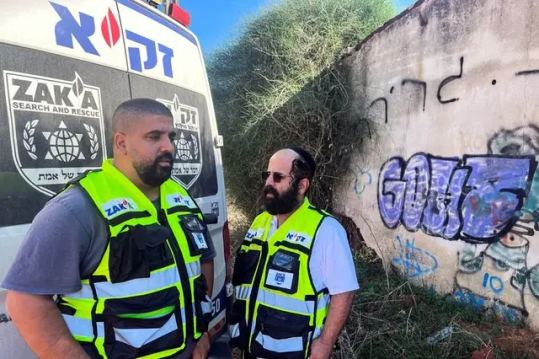
In the peaceful and leafy Be'eri community, houses were burnt to the ground and families killed in their own houses with a brutality that Warraqi says "has nothing to do with Islam".
"Our religion, as a proud Arabic Muslim Israeli guy, I'm saying that has nothing to do with our religion," Warraqi said.
Be'eri was among the hardest hit communities by the Hamas assault on Oct. 7, which Israeli officials say killed 1,200 people, mostly civilians gunned down in their own homes, on the streets or at a dance festival. The attack was the deadliest in Israel's 75-year-old history.
Surviving residents were eventually evacuated and Israel has since launched a devastating bombardment and ground offensive against Hamas in Gaza that has killed more than 11,500 people.
Warraqi said many Muslims were also killed in the assault, recalling how he took care of two Arab women wearing hijab, shot by the attackers, and three Arab bus drivers from East Jerusalem who got shot in the head.
"That means that they're (Hamas) not doing this for the country or for religion, they're just doing this for the hatred," he said.
Warraqi is still hopeful that Jews, Arabs, Christians and Muslims can learn to live together in Israel, saying "we are all the same".
"I think Israel learned today how to die together. Now it's time to learn how to live together ... We have to take care of this and we have to stop hatred and start living together."
5 notes
·
View notes
Note
“There is evidence of mass rape so brutal that they broke their victims’ pelvis – women, grandmothers, children.”
“People whose heads have been cut off. Women standing in their night dresses woken up and shot. Faces blasted off. Heads smashed and their brains spilling out,” she said. “A baby was cut out of a pregnant woman and beheaded and then the mother was beheaded.”
The Hamas terrorists were barbaric to begin with, but many of them also reportedly took a drug called Captagon, an amphetamine produced in southern Europe and the Middle East that has helped fuel terrorism. It is commonly referred to as the “ISIS drug.” Small bags of cocaine were also found in vehicles that the terrorists used to drive from Gaza to Israel.
Colonel Rabbi Haim Weisberg said that what Israeli forces have discovered in the aftermath of the attacks was “evidence of torture and savagery.”
“We have babies with their heads cut off. Bodies without hands, without legs, without genitals,” he added.
https://www.dailywire.com/news/israeli-official-hamas-raped-women-grandmothers-children-so-violently-they-broke-victims-pelvis

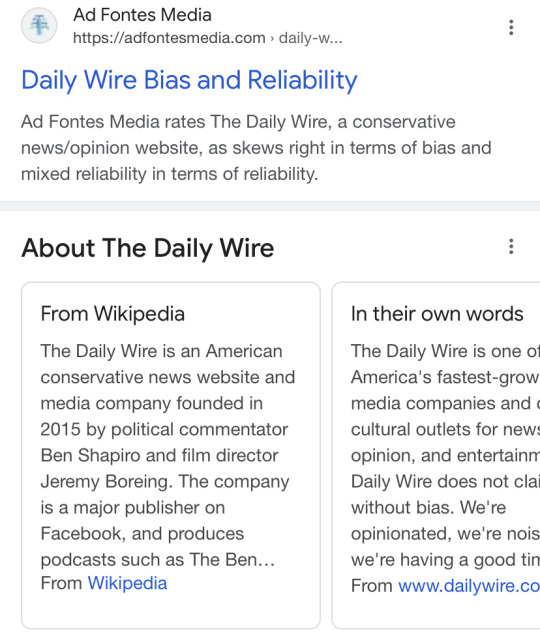
nice propaganda piece. you always know it’ll be reliable and totally verified when it starts with “barbaric evils that innocent Israeli citizens were forced to experience at the hands of savage Palestinian Islamic terrorists”. ben shapiro the right-wing zionist isn’t exactly the person i’d turn to for my news but that might just be me.
so the real news is: dozens of beheaded babies remains an unverified claim with no proof provided. mass rapes remain to be unverified claims with no proof provided. the latter can very much be true as rape has always been done by men in war, but again, we can only speculate instead. that is, unless we use propaganda pieces which serve to justify the “barbaric evils” and “savage” acts of israel towards gaza.
5 notes
·
View notes
Note
7. current obsession?
25. the story behind a scar of yours?
7. current obsession
under a cut because long
Dracula Daily! I get to have a mini book club almost every day, but with memes! I had read Dracula once before, but of course read it straight through in just a few sittings. I didn't stop to ponder what *exactly* the Count did to his victims. I didn't notice how bananas the dynamic is in the group we now affectionately refer to as the London Polycule. And of course without Tumblr I certainly would have overlooked some of the most hilarious details.
Like this, from the Oct 5 entry:
"A tall man, thin and pale, with high nose and teeth so white, and eyes that seem to be burning. That he be all in black, except that he have a hat of straw which suit not him or the time."
I just love that when describing the Count to someone else, the sailors fucking roasted him for his ugly straw hat. So out of fashion!
The last time I participated in a large-scale online book club was Infinite Summer, which was dedicated to reading the behemoth Infinite Jest. It wasn't nearly as fun.
25. the story behind a scar of mine
I was 24 years old and had been dating my now-husband for about 6 months, and he invited me to come home with him for Thanksgiving. Starting several days before that, however, I began to feel unwell. Throwing up and worse, bouts of shivering, and an overall pain in my midsection. I am generally a very healthy person (even more so at age 24) and assumed it was just some minor ailment that would go away like always. And I didn't want to cancel my holiday plans for a "tummy ache."
Well friends, things took a sharp turn for the worse while we were on the plane. Convulsive shivering and a pain in my guts so severe I couldn't stand up straight. I woke up early the next morning vomiting again. I went to the emergency room and had my appendix out right before Thanksgiving. Was discharged the next day, because America. And spent the rest of the holiday weekend recovering from surgery at the house of my future in-laws, and unable to eat solid food at a holiday gathering that is really only about the eating of food. I was horribly bloated as my intestinal tract was healing, plus I was on a high dose of opioid painkillers. WHAT A GREAT IMPRESSION YOUR GIRLFRIEND IS MAKING. I felt so awkward.
So anyway, they were able to perform the appendectomy laparoscopically, and I only have a teeny tiny scar that is conveniently located inside my belly button.
It is the only scar I have and is basically invisible.
5 notes
·
View notes
Text
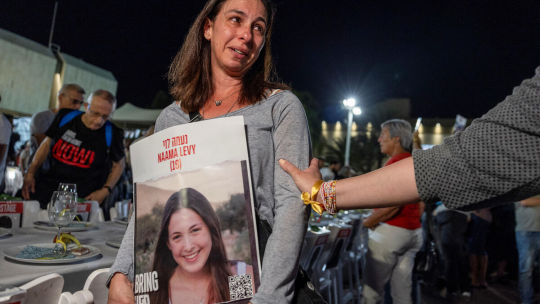
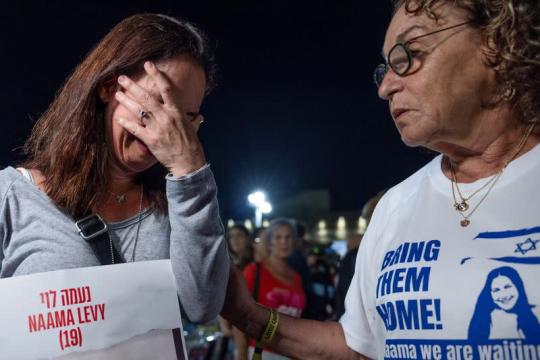
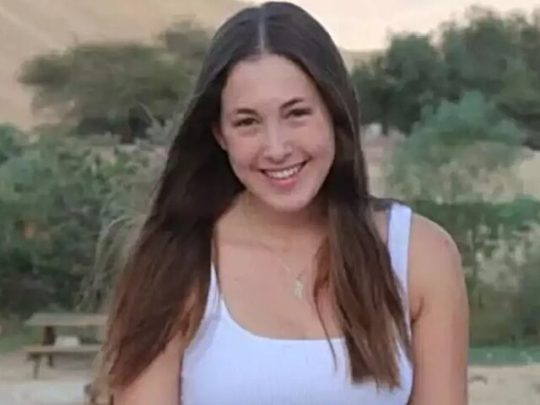
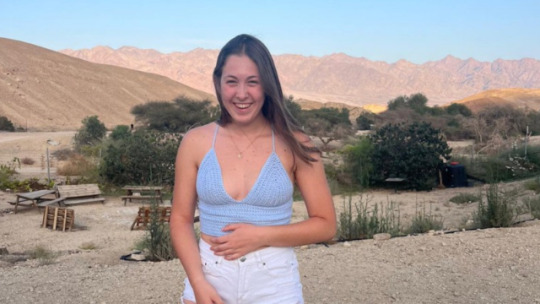
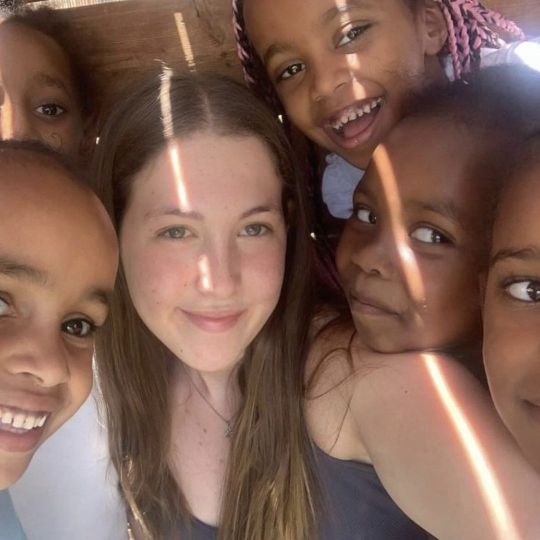
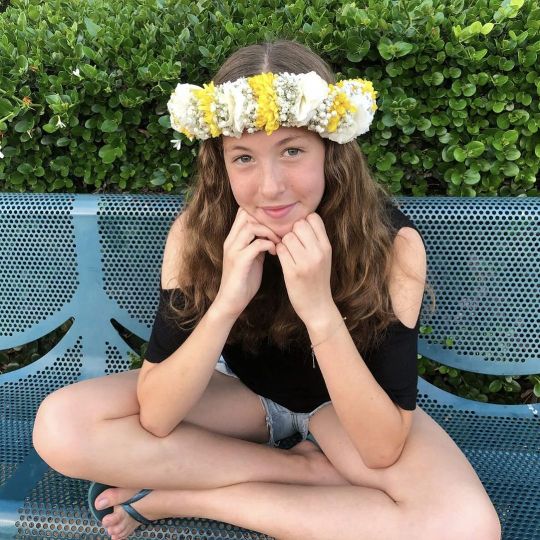
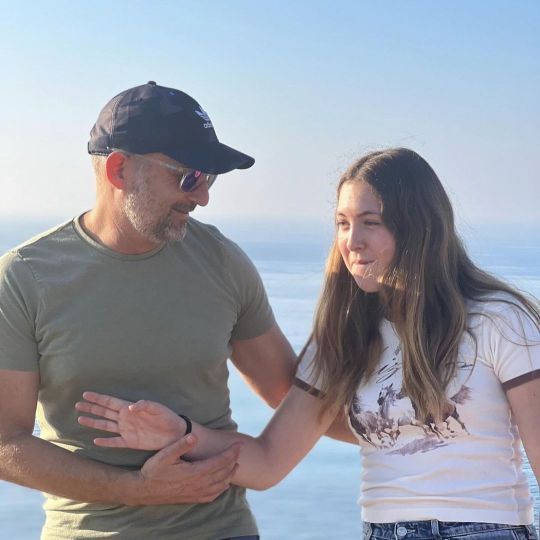
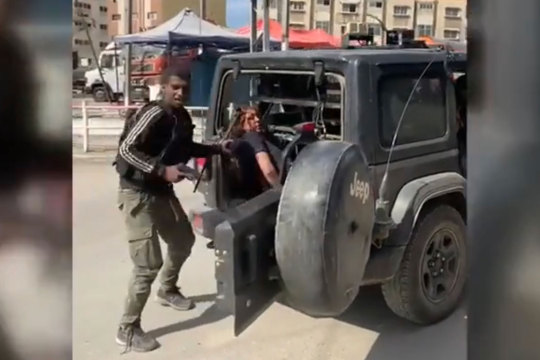
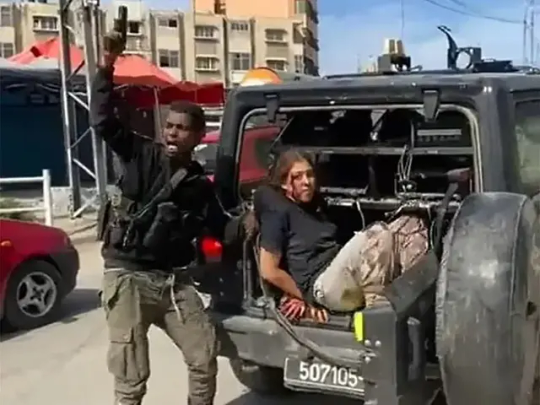
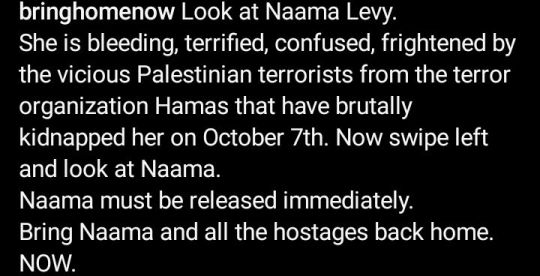
Naama Levy 💔💔💔 what Hamas and the Palestinians who we're working with Hamas did on Oct 7th was cowardly ,evil , disgusting and vile .
Oct 7th will never be forgotten !!!
I hope and pray that Naama is returned to her family along with the other hostages .
Look at her ....she is a real person ,who had a real life and was taken by pathetic cowards .
Hamas are not not freedom fighters
They are absolutely nothing and that's all they will ever be is NOTHING!!!
In what world is it ok to do this ???
Please Pray for Naama Levy and her family 🙏🙏🙏🙏🙏🙏🙏🙏🙏🙏🇮🇱💙
May her memory be a blessing 🙏🙏
#naama levy#bringthemhomenow#israel#gaza#palestine#jumblr#stand up for the victims of oct 7#oct 7th#hamas#hamas are cowards#hamas are not freedom fighters#hamas are terrorists#hamas genocide#may her memory be a blessing
55 notes
·
View notes
Text
Identity of Agitator Who Called Byron Donalds 'Uncle Tom' at GWU Is Revealed, and It Explains Quite a Bit
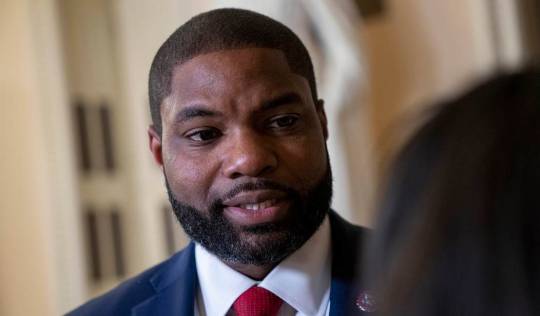
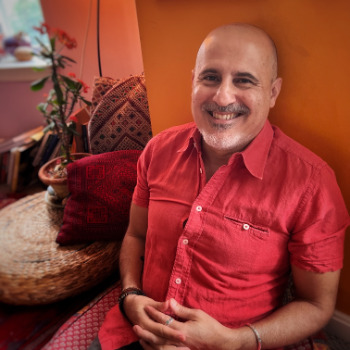
Zein El-Amine (Photo Above)
On Thursday, Rep. Byron Donalds (R-FL) was among several members of Congress to visit the pro-Hamas encampment at George Washington University to see the extent of the occupation and the damage it has caused.
During his visit, Donalds was interrupted by an older pro-Hamas protester who proceeded to yell at Donalds and call him a "race traitor" and "Uncle Tom" over his support of Israel and his stand against antisemitism.
Rep. Donalds' only response was to observe that the man seemed to be a little old to be a student before resuming his remarks to others on the campus.
READ: Byron Donalds Dunks Pro-Hamas Agitator During GWU Visit, Raises Larger Point in the Process
While it's not uncommon to see older students going to college, Donalds' comment ended up being prescient, because as it turns out, the man has now been identified, not as a GWU student but as a Georgetown adjunct lecturer with a history of activism against and hatred towards Israel:
Zein El-Amine, a Lebanese writer and adjunct lecturer at Georgetown, lashed out at Rep. Byron Donalds (R., Fla.) on Thursday when the lawmaker arrived on campus to show his support for the embattled Jewish and pro-Israel community.
[...]
El-Amine is no stranger to anti-Israel activism, and has a long history of supporting Students for Justice in Palestine (SJP), one of the central campus groups engaging in anti-Semitic protests and waging violence against Jewish students. SJP’s parent group, National Students for Justice in Palestine, was sued earlier this week by Israeli terror victims who allege the group is partially liable for Hamas’s Oct. 7 terror raid in Israel.
El-Amine in the past has "spread anti-Israel terror propaganda on social media, specifically including images promoted by the terror group the Popular Front for the Liberation of Palestine (PFLP)," according to an online dossier published by Canary Mission, a watchdog group that tracks campus anti-Semites.
A Google search also showed El-Amine, who spends a lot of time on Twitter pushing Hamas propaganda, as an "Adjunct Instructor of Critical Race Gender and Culture Studies" at American University in Washington, D.C. His spring 2024 curriculum was noted as "Topics in Arab World Studies: Arab [History] through Arab Novels."
While I certainly wouldn't put it past an actual student to use those same slurs against Donalds, the fact that it was a lecturer who uttered them explains quite a bit in the context of what we're seeing take place on campuses across the country.
Cornell law professor Bill Jacobson* summed things up rather succinctly after seeing the video and learning the man's identity:
'Nuff said.
*Full disclosure: I also write for Prof. Jacobson's website, LegalInsurrection.com.
Flashback -->> ‘Largely Irrelevant’: Byron Donalds Brings the Fire After Hillary Clinton Insults Trump Supporters
0 notes
Text
there's this really weird and pervasive doublespeak going on here (I'm American so I can't speak outside my sphere here but it's definitely pervasive in America, though it clearly exists elsewhere too) that like. OK so. We have all these "rights to bear arms" and "stand your ground" and "freedom of speech" and shit, ostensibly to "defend ourselves."
But because the colonialist, capitalist structure demands a hierarchy of abuse from top to bottom, that's not really what those laws are about. It's not about "defending yourself," its about legitimizing your right to steal from others, making up laws that say "I can do what I want, but not you," like fucking Ron Swanson. "Defense" is a very cleverly chosen misnomer.
Cus then culturally, we say things like, "violence is ALWAYS Bad and wrong! You should never ever hurt someone else! Unless it's in self defense!" But even then, good luck defending that! Because if you're in a position you need to defend, you're already delegitimized in the eyes of the state, and anyone else contained in your hierarchy. "Defense" is for actors who have already moved to do something bold, to take something from you, and are "defending" their "right" to exert power over you. Conquest is righteousness. If you took it by force, it's yours rightfully. That's what our laws are protecting the right to defend. The pilgrims weren't VIOLENT, they weren't OPPRESSIVE, they were DREAMERS! Our laws are merely defending the legacy of HOPES and DREAMS that they left behind!!!
This society is structured from the top down to favor the narratives of abusers- people will always listen to them first and foremost, because people respond first to fear, and fear of power, not to truth. Conquest is righteousness.
So, violence is bad and wrong... but not if you're exerting it over the powerless! Right! If we did that to grab land, thats okay! Its all in the past! If cops are doing it, that's okay, because its only their jobs, they don't know better, they can't do better, they arent allowed!! Have some sympathy!!
It's only bad if the victim hits back. Even ONCE. If you do that, everyone is so quick to tell you that you're just as bad as your abuser.
It's also like, you aren't really successful unless you can raise yourself to a level of having others below you. If you refuse to exploit others and you live a modest life, that's somehow not good enough, embarrassing, shameful. But if you work your way up to the top of a hierarchy, and you're now someone who exploits the workers below you, that's admirable. If you're at the top of the hierarchy, you can hurt anyone and call it "helping them" and they'll believe you.
Because "winners" write history. And you know who "keeps America winning."
Winners are the ones telling you that all violence committed by YOU is ALWAYS equally bad and therefore, always abusive and always wrong-- but if it's done by your oppressor "on behalf of you," to PROTECT and DEFEND someones RIGHTS, then it's necessary and you shan't complain!
Think about who that narrative benefits. The idea that even self defense is reprehensible, that even hitting back once makes you despicable and tainted and just as bad.
Think about it. who does this narrative benefit. Think about who has gotten to write these stories. Who's legislating the textbooks that kids are reading in school, and what they get told about this stuff.
Who's supplying Isreal. Who's sending them tanks and weapons and bombs and backing them up against the rulings of the fucking ICJ. Who is that. Hmm. And I wonder. Could this narrative possibly benefit that force internally in any other ways, too? Perhaps, in its own political power struggles at home?
We have a culture where nobody can even condemn genocide without an addendum that says, "and also the 1,200 people Hamas killed recently. Even though we're talking about tens of thousands of dead palestineans who were just existing- 32,552 of which have been killed SINCE OCT 7- we CANT without also saying, "but this, too, also, as well? Hamas?? This is also bad, and we are so, so saddened by the violence on both sides, we just want everyone to stop and get along I'm just soooo upsettis about it all violence is always soooo scary and bad!!!! :(((((((((((("
"if Hamas would just stop defending Palestine, Israel wouldn't be forced to genocide all of them!"
That sounds awfully familiar to anyone who's ever been in an abusive relationship. "Look what you made me do. Look what you did to me. You're just as bad as I am. We're both abusive."
Yeah.
It feels eerily familiar to the both sides defeatism of our "electoral politics." You will eat what's on your plate, or you will eat nothing. You will sit there and eat it and participate in dinner until we can "push left," and maybe eventually we can have a meal that's palatable to you. You will not complain. You will not be disruptive. You will be grateful. And if you ask for more, you will be scathingly reminded how there are starving children in Russia with no democracy, and not even two shitty choices to waffle over.
Yeah.
Never defend yourself, not until you've earned the right to do so by Conquest. All violence is bad, unless the state is enacting it on you. That's REAL self defense.
Who does that benefit, I wonder.
#me#im sure im dancing around some points here that have already been made better by like. idek. marx or something#i havent actually read any of that stuff yet so im really just making observations#its like the hippies came and the government said#hm. this mantra of nonviolence is something we can easily distort and benefit from.
0 notes
Text
REHOVOT, Israel, Nov 17 (Reuters) - Jamal Warraqi was among the first emergency rescuers to reach kibbutz Be'eri after Hamas gunmen rampaged through the community in southern Israel on Oct. 7, and the sight of slaughtered families and children is still seared into his memory.
More than a month later, the volunteer first responder remains visibly shaken as he recounts his rush to Be'eri in an ambulance and the bodies lying in the streets along the way.
Unlike most emergency workers called out that day, Warraqi is a Muslim Israeli Arab. He found his experience of Oct. 7 profoundly distressing, but says it also strengthened his belief that human beings must "stop hatred" and learn to live together.
Warraqi is a volunteer for Zaka, a non-governmental rescue and recovery service. Founded in 1995, Zaka is comprised mostly of ultra-religious Jews committed to ensuring that as much of the human body of every victim is buried in accordance with Jewish law. It also has Christian, Druze and Muslim volunteers.
"I saw families, they were slaughtered, a lot of families," Warraqi told Reuters, standing next to his ambulance.
"I saw a father and mom with three kids, they were tied hands up, hands back ... as they were put on their knees in front of each other, then they got shot in the head."
"When you see such a thing... you just start imagining what happened in there, what, how did they react, who was got killed first, the kids or the parents."
In the peaceful and leafy Be'eri community, houses were burnt to the ground and families killed in their own houses with a brutality that Warraqi says "has nothing to do with Islam".
"Our religion, as a proud Arabic Muslim Israeli guy, I'm saying that has nothing to do with our religion," Warraqi said.
Be'eri was among the hardest hit communities by the Hamas assault on Oct. 7, which Israeli officials say killed 1,200 people, mostly civilians gunned down in their own homes, on the streets or at a dance festival. The attack was the deadliest in Israel's 75-year-old history.
Surviving residents were eventually evacuated and Israel has since launched a devastating bombardment and ground offensive against Hamas in Gaza that has killed more than 11,500 people.
Warraqi said many Muslims were also killed in the assault, recalling how he took care of two Arab women wearing hijab, shot by the attackers, and three Arab bus drivers from East Jerusalem who got shot in the head.
"That means that they're (Hamas) not doing this for the country or for religion, they're just doing this for the hatred," he said.
Warraqi is still hopeful that Jews, Arabs, Christians and Muslims can learn to live together in Israel, saying "we are all the same".
"I think Israel learned today how to die together. Now it's time to learn how to live together ... We have to take care of this and we have to stop hatred and start living together."
19 notes
·
View notes